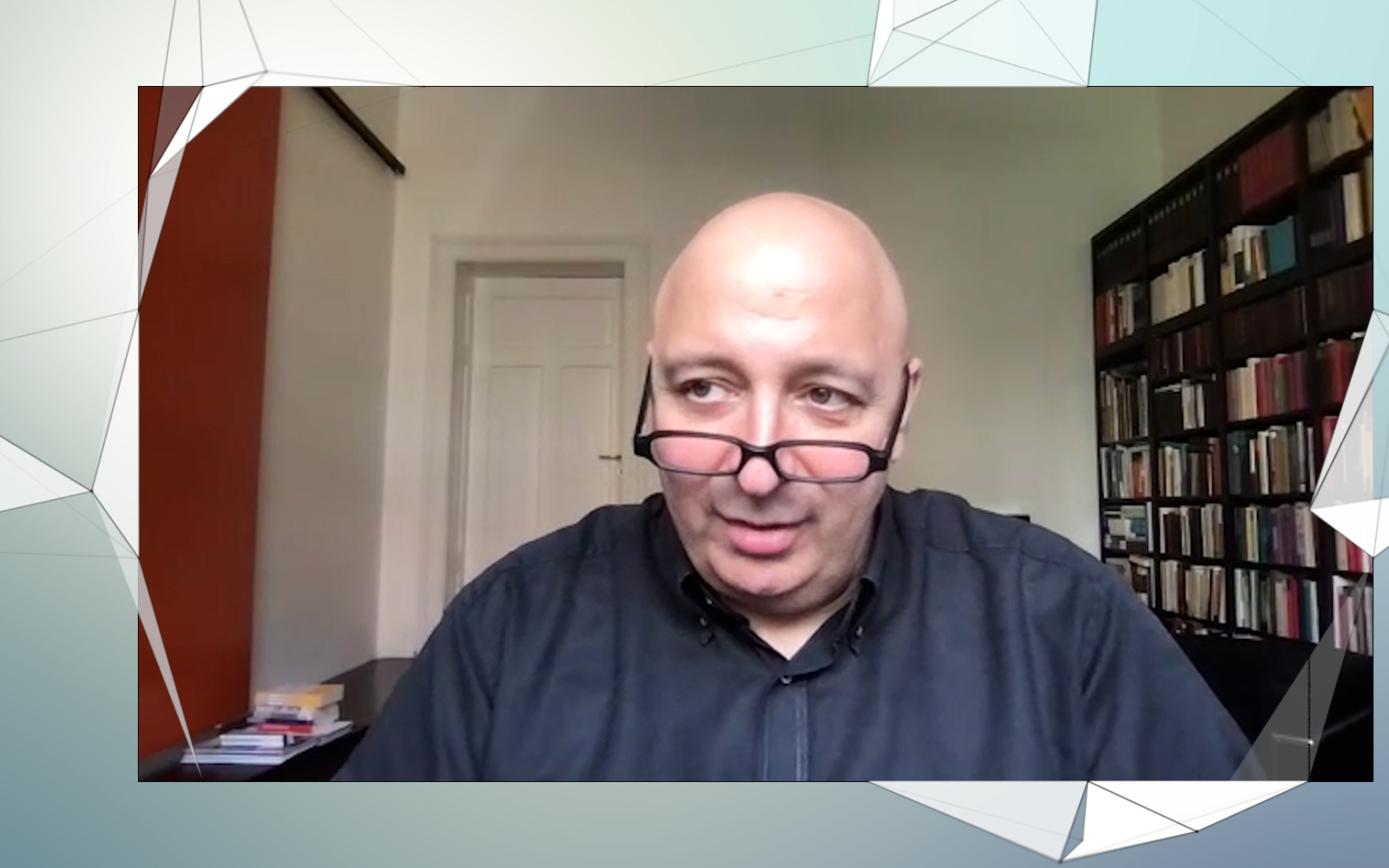Digital Salon
Florian Rötzer in conversation with Armin Nassehi
Fri, July 09, 2021 6:00 pm CEST
- Location
- Online
- Language
- German
Florian Rötzer talks to sociologist Armin Nassehi about aspects and social consequences of digitalization, about science and politics.
Digitaler Salon: Florian Rötzer im Gespräch mit Armin Nassehi
Transcript of the conversation (German)
Transcript of the conversation (German)
- transkript_digitalersalon_nassehi.pdf (109.1 KB)
One of the focal points of Nassehi's research, who sees himself as a scientist in different roles and not as an intellectual, is the transfer of scientific findings into political decisions – most recently in a very practical way in the Corona Expert Council of the North Rhine-Westphalian state government and in the Bavarian Ethics Council. He warns against illusions of transferring science into politics, because the latter does not have to solve scientific problems, but political ones. For him, the pandemic demonstrated above all in real time how society and everyday life function, because usual routines were suddenly suspended. The task of the social sciences today, he said, should no longer be merely technology assessment, but it was high time to understand the technical revolution: »It's about what we see of this new, digitalised reality. In the past, intellectuals coined such long sentences that you knew it came from at least seven books. That presupposes a knowledge of the world that you can call up. World knowledge is now ordered differently. We have to learn that.«
In digitalization, it is not only the volume of data that is important, but also the speed aspect. Human consciousness is too slow for the millisecond decisions that algorithms make possible: »The higher speeds represent a different black box than our brains.« How to deal with that, he says, is a question of risk-taking. As far as machine ethics is concerned, he says, one has to ask – also against the background of humans sometimes having denied person status to other humans – whether there are non-human entities that we conceive of as persons. The question (not moral, but ontological) is therefore according to which criteria an entity – a human being, a living being, a machine – is a person.
Armin Nassehi teaches sociology at the LMU in Munich. He is one of the best-known sociologists and intellectuals in Germany, present on many levels with articles, interviews, lectures and consultations. Since 2012, together with Peter Felixberger, he has published the legendary Kursbuch, which addresses and reflects on current issues.
Nassehi has published numerous books, most recently: »Gab es 1968? Eine Spurensuche« (2018), »Muster. Theorie der digitalen Gesellschaft« (2019) and »Das große Nein. Eigendynamik und Tragik des gesellschaftlichen Protests« (2020). He is a member of the Corona Expert Council of the North Rhine-Westphalian state government, the Bavarian Ethics Council, the Senate of the German National Foundation and the Advisory Board of the Ethics Association of German Business, among others.
The Digital Salon
-
Read more
In the 18th century, intellectuals met in salons hosted by women to present their ideas, let their wit shine, engage with other intellectuals regardless of the barriers of class and gender, and engage in erudite conviviality. Salons were partly public events in private rooms, to which the »celebrities« acting on stage – from literature, philosophy, natural sciences and politics – were invited together with the audience. The salons of the Enlightenment found their continuation in the format of TV talk shows, with their disputes driven by the media's need for attention.
In the Digital Salon, on the other hand, we want to once again cultivate a quiet culture of conversation that takes its time, has no particular goal, and strolls discursively with the respective guest. Topics include, for example, the role and self-description as intellectuals, the thoughts that are timely, the change in attention and publicity through the digital lifeworld, political visions of the future, and »what needs to be done«.

